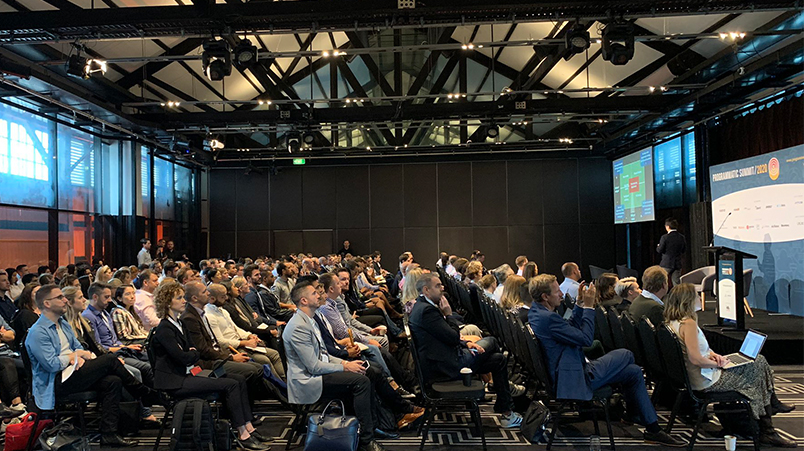Cookies and crackers: the best one-liners from the Programmatic Summit

"The cookie has long-enough been the crack cocaine of the industry," says Unruly's Ricky Chanana.
From the great cookie debate to in-housing and the future of TV buying, Mi3 has curated some of the best one-liners from this year's Programmatic Summit in Sydney and Melbourne last week. Marketers from Nestle, Finder and Microsoft are all here. Enjoy the fast read.
We recognised early on that our advertising model was unsustainable. To put that into perspective, in 2008, Microsoft had 1200 salespeople going and selling direct display and video advertising. Today, there’s one in all of APAC.
If you’re looking at in-housing your digital media buying from a purely cost-saving perspective, that’s not the right way to approach it. You need to think of the bigger advantages
The data governance around handling of information associated with personal identifiers has generally been poor. The level of understanding in the industry around how privacy protection works has been poor. The level and speed of industry response to regulators has been poor. So we are facing a situation where regulators around the world have become pretty pissed off with the ad tech and programmatic industry - and they are starting to vent.
We are at the stage [in programmatic] of growth and enlightenment. We understand the real value that programmatic principles offer. We are starting to match that with all the fantastic IP that we have had for years in media and are starting to ingest that into programmatic.
With all the issues surrounding digital disruption, it’s important to remember the fundamentals around marketing don’t change, everything from the marketing mix, product, CX, they remain the same. What digital allows us to unlock is a way to create engaging experiences in a fashion that is more relevant and timely.
Joyce Tan, Head of Marketing Confectionery, Nestlé says the role of the marketer has been significantly impacted by the rise of programmatic, so much so that there is now a constant need for upskilling or risk being "left behind".
I’m not a traditional marketer and so I’m in the detail, numbers and analytics and because of that, I’m in a privileged position where I know 90% of every dollar I spend, the impact is has on my business and that’s extraordinary.
The cookie has long-enough been the crack cocaine of the industry. We are going to see clients spending a lot more on DMPs [as Google switches off cookies] and we need to make targeting better for them by the same token. We need to get our shit sorted in regard to first-party data.
Once you look past 2020, it’s going to be harder to say things 'aren’t TV'; it’s not going to be as easy to say Twitch or YouTube isn’t TV, because for those watching them, they are. They are TV, it just comes down to a timeframe.
I’m worried that it will put things like appointment viewing buying out of reach for a lot of clients. It’s a weird worry to have because it's probably out of reach already in the sense that you have to have the right TV buying agency to swing some of your spots. [VOZ] should democratise it, but then I still wonder what it will do to pricing from a demand point of view.
When we are looking at university graduates, we no longer look at people with creative backgrounds or arts, we are really hunting for those with analytical mindsets given that this is an industry that is becoming increasingly focused on data.
We should stop concentrating on the source, which is the first, second and third-party data and start focusing on the problem that clients are trying to solve. As an example, if you’re a CPG brand, you are after quality demographic data, TV viewing data, etc. The only thing you want is for the data to be scalable, quality and accurate, so if you’re a provider and tick off all the boxes and deliver out on the privacy, I don’t think it should matter on where that data comes from or its source.
Unless we find a viable solution to [the cookie demise] there is a risk that the diversity we all love about the internet and medium/small publishers could become watered down, given the amount of first party data larger publishers can offer clients.
